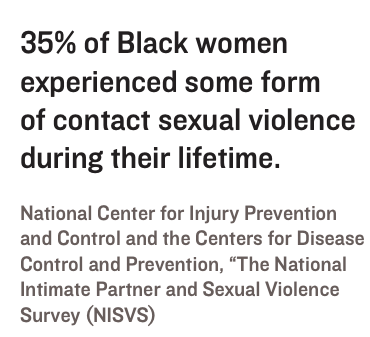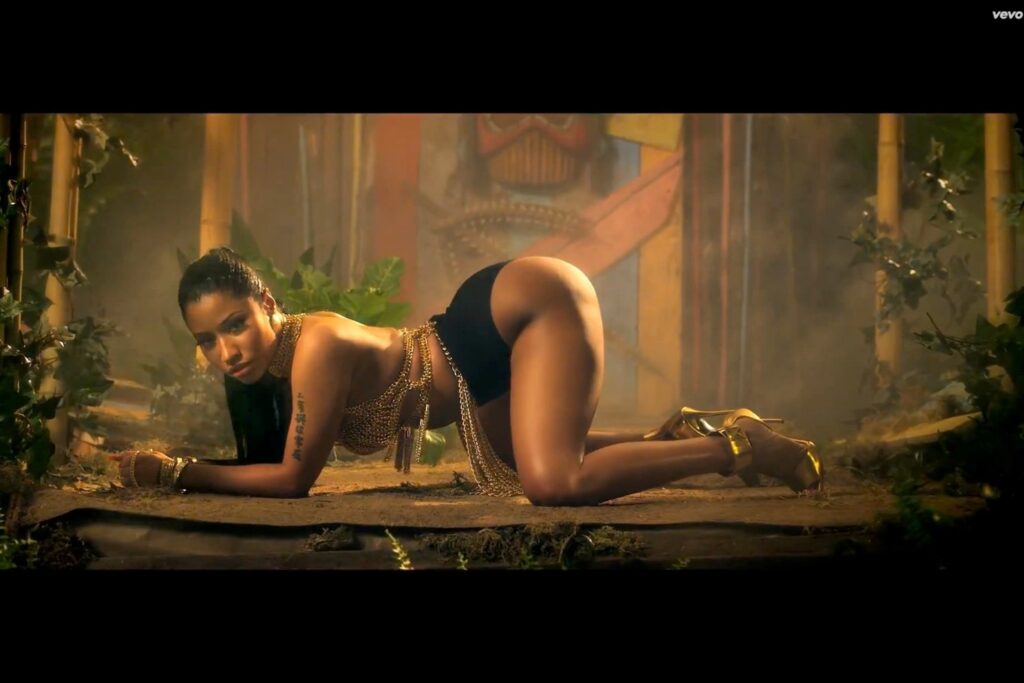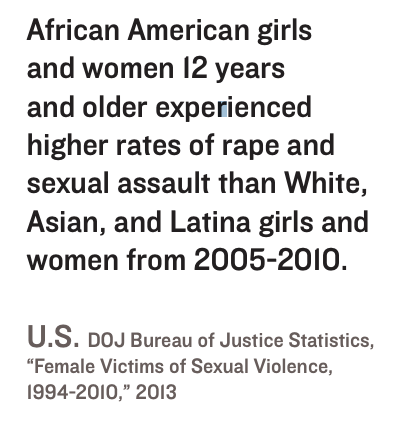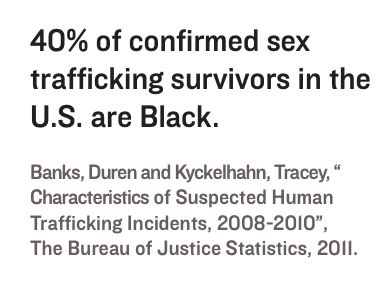
**Warning: this article contains sensitive content relating to sexual assault and emotional trauma.**
What is the black community doing about the men who prey on our young girls sexually?
Do we just keep blaming the girls for acting “too grown” and never hold the adult men who prey on them accountable for their predatory behavior? Do we turn a blind eye and deaf ear to the sexual objectification of young black girls?
Or do we start teaching the men in our community it’s not okay to prey on young girls? Is it “man-bashing” if we have this conversation with our men?
It’s very easy to create social media platforms and BlogTalkRadio shows that continue to focus on the brokenness of black women. But why not create safe spaces to deal with the social and psychological issues that keep breaking black women as children?
The black community’s refusal to honestly address the sexual objectification of young black female bodies by boys their age and older men is the culprit.
The social stigmas of black female sexuality is a major contributing factor to black female dysfunction. Psychology of Women Quarterly reports the findings of an experimental case study conducted at Northeastern University, where 435 undergraduates viewed a photograph accompanied by a description of a target young woman. The target objective was to demonstrate how the pregnancy status of a black woman is viewed differently than that of a white woman. According to the study’s findings, the black female target was perceived “more negatively on items related to historically rooted societal stereotypes about sexual activity, sexual risk, motherhood status, and socioeconomic status than was a White female target,” and was also “perceived as more likely to be a single mother needing public assistance.” Case studies such as this one show evidence that societal stereotypes have damaging effects on the perceptions of black female sexuality, underscoring the importance of bringing awareness to how black women and girls are perceived based upon stereotypes.
This social dysfunction in perception vs. reality spills over into the black psyche. I have had black men ask me why black women are so angry, mean-spirited, spiteful and ratchet. However, they are reluctant to focus on the perpetual objectification of black women and girls that starts at a young age. They have the gall to demand that we be submissive, soft-spoken and more ‘feminine’ when dealing with black men, all while they fail to address the social and psychological issues at the root of why some of us conduct ourselves as the harlots as which we are labeled.

As quoted by U.N.I.T.Y Hip Hop Hypocrisy, “Bombarded with warped images of their humanity, some black women tilt and bend themselves to fit the distortion.”
It is believed that this is why some black women give in to negative stereotypes and adhere to the negative images projected onto black women in America, such as being the so-called “video vixen” in rap videos that degrade women. These black women have a distorted perception of who they are as women and often contort to this “warped image” rather than find “which way is up” in the “crooked room”.
Many young black girls idolize the “video vixen”, a title given to a black woman who assumes the role of a sexual female portrayal. The sexualization and the explicit levels of objectification have become so significant over the years that the term “video vixen” has become interchangeable with “video ho”.
Psychology of Women Quarterly writes that “black women are implicitly associated with both animals and objects to a greater degree than white women.” Such dehumanizing treatment of black women in U.S. society has led to the mistreatment of black women and devaluing of our overall worth.
A historical example of this objectification would be the historical case of Saartjie Baartman, a South African slave unwillingly sent to London in the early 1800s to be exhibited as a “freak show” display. She would appear to audiences locked in a cage, like a wild beast, partially nude. Her show toured circuses, museums and bars, where onlookers paid to poke her, grab her buttocks, prod her privates and gawk at her unusual African features.
Baartman came to be known as the Hottentot Venus and was not considered fully human (Butcher, 2002), which justified her animalistic treatment and objectification.
When referring to the sexual oppression of black women and girls as a state of “victimhood,” in comparison to how “free” white women are with regards to sexuality, Carter and many others completely miss the mark of accurate assessments when they fail to dig deep into the enslaved DNA of black women, addressing the sexual objectification of our foremothers.
White women have been protected by a system of white female frailty for centuries, which allows them the freedom to express and explore hyper-heterosexual sexuality, and still be viewed as a woman worth protecting. In breaking down the sexualized aspects of how we (black women) are viewed as it pertains to female sexuality, we can see that these views of our bodies, our wombs and reproductive capacities being linked to our enslavement, and sexuality for the white female is always placed upon a pedestal of feminine purity over black women.
One example of this phenomenon is how Hollywood celebrates Madonna as being sexually liberated, but is ready to burn Megan Thee Stallion at the metaphorical stake of whoredom.
There are socialized double standards in every aspect of our waking life as it pertains to female sexuality. Each standard varies in degrees of acceptance and levels of promiscuity vs. purity and is built upon a system of racial classification.

As a collective race, we are struggling with having a healthy relationship between black female value and sex. A lot of black women we know personally grew up in households where they were called names frequently by a parent (mainly their mothers), suffered sexual trauma in silence, or had bad experiences with sex.
Sex has always been taboo for black women because our sexuality has always been used against us in social judgment and as a means of control.
Sex is used as a tool of manipulation in relationships with some black men. How good we make a man feel in bed determines what access we are given to resources that he is the gatekeeper of (suitable living conditions, commitment in a relationship, reliable transportation).
The honor of a family name is tied to the sexual behaviors of the women in the family. The barometer of womanhood and a demonstration of what a “good woman” looks like is linked to who all “hit it.”
Our fertility has been the measuring stick of virtue. Biblically, our wombs are reserved for a man and so don’t belong to us. So many of us lack knowledge of our bodies because our bodies have been sexually objectified for male profit, reserved for the continuation of male lineage, or seen as dirty if we take control of them.
A woman with carnal knowledge of self is labeled the succubus spirit that we hear about in fire and brimstone sermons. She’s the temptress that must be avoided at all costs. Our sexual behavior prior to marriage can be a dealbreaker for any man seeking to make us a wife.
Even our sexual past is factored into our measurement of desirability as a spouse. Who you were having and who you currently have sex with is carefully examined under a microscope of social constructs. Black women who take control of their sexuality are rejected and ostracized for openly expressing the embrace of their own bodies.
These enslaved attributes have served as hand-me-down attitudes towards the views we have of black females as a collective.

The average black woman can tell you exactly when the shift in treatment happens: around the time we hit puberty. When black girls reach childbearing age, we are seen as women with deadly weapons that can either entrap a man with a child (draining him of his resources) or seduce a grown man with young female sex.
When a young black girl’s body starts to develop, it is assumed she is sexually active, and is not simply undergoing the normal, healthy development from childhood into womanhood. Young black girls between the ages of 10 to 16 are often seen as temptresses trying to “use what we got to get what we wanted,” and often viewed as competition for grown women trying to get and keep a man.
From parents, jaded church mothers, jealous mother figures and members of the community, to teenagers seeking to have their freaky tales matched in locker room banter, young black girls are seen as Jezebels prior to even having our first consensual sexual experience.
Black people focus upon black women and girls referring to themselves as “bitches” and “hoes” as lacking self-respect, without addressing the socialized programming that has led many of us to call ourselves such names. The truth is: we’ve been called these names all of our lives.
